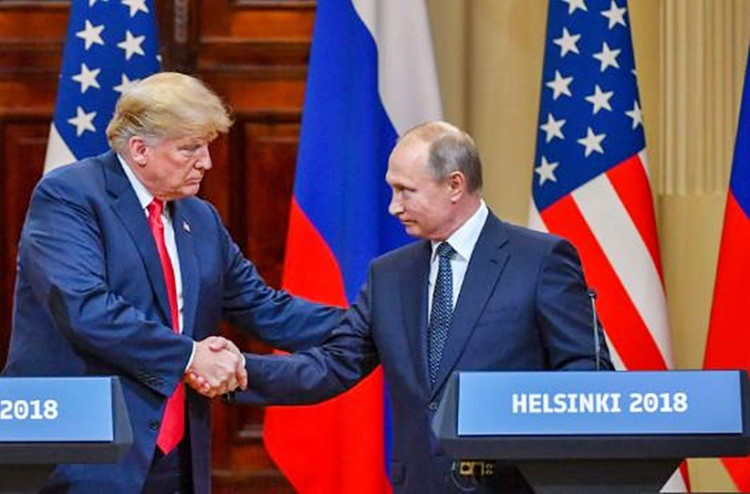The recent Trump-Putin summit in Finland, whatever that was, won't restore close ties between the United States and Russia despite president Donald Trump's apparent willingness to obey whatever Vladimir Putin commands him to do, contends an op-ed in an authoritative Chinese military website.
The article in the website of the People's Liberation Army (PLA) Daily, the official newspaper of the PLA, argues that the Helsinki meeting is unlikely to change the deteriorating course of U.S.-Russian relations in the short-term "since it failed to achieve concrete results."
The op-ed by Ma Jianguang said the only "results" were vague promises by both sides that neither country could win a nuclear war and that concrete measures must be taken to reduce nuclear risks, including responding to network nuclear threats and restarting the bilateral crisis management dialogue.
No formal documents codifying these points, or any other agreements, were signed at Helsinki, however, making them unenforceable.
The main stumbling block to any U.S., Russian rapprochement is their status in today's geopolitical world. Ma noted that the United States wants to maintain its global hegemony as the world's only Superpower while Russia is bent on emasculating American military and economic power by establishing a "multipolar world" under its rule - and apparently excluding China.
Ma pointed out that the United States continues to rely on its powerful political, economic, and military strength to lead other Western countries in their efforts to contain Russia.
But to counter this imprisonment, Russia has taken a number of geopolitical and military countermeasures, chief among which is the development of new nuclear weapons and their delivery systems that can threaten all NATO member countries and the United States simultaneously.
Chief among these new nuclear weapons are the Avangard hypersonic glide vehicle; the silo-launched RS-28 Sarmat (NATO reporting name, Satan-2) intercontinental ballistic missile (ICBM) and the Kh-47M2 Kinzhal (Dagger) air-launched hypersonic cruise missile equipped with a nuclear power unit.
Ma also noted that the "wrestling" between the United States and Russia has intensified due to the eastward expansion of NATO; the deployment of anti-missile systems in Eastern Europe; the continued support of Ukraine by the West and the situation in Syria.
"With such opposing fundamental positions, it is obviously difficult to resolve the structural contradictions of the two countries in one meeting," wrote Ma.
He noted that whatever outcomes of the meeting will be accomplished, none of these will fundamentally erase the differences between the United States and Russia. "In the foreseeable future, the two sides will continue to compete fiercely," he said.






